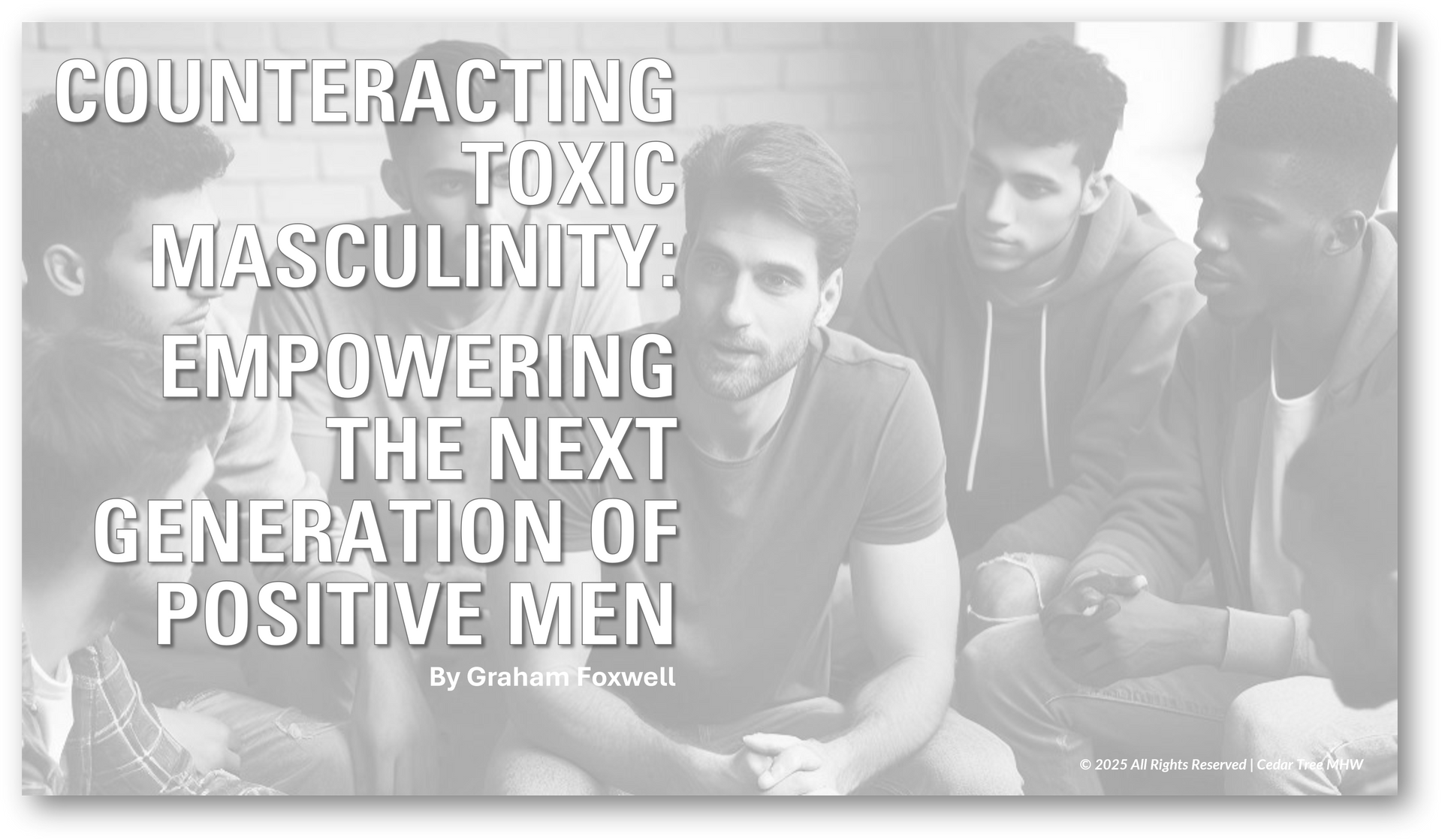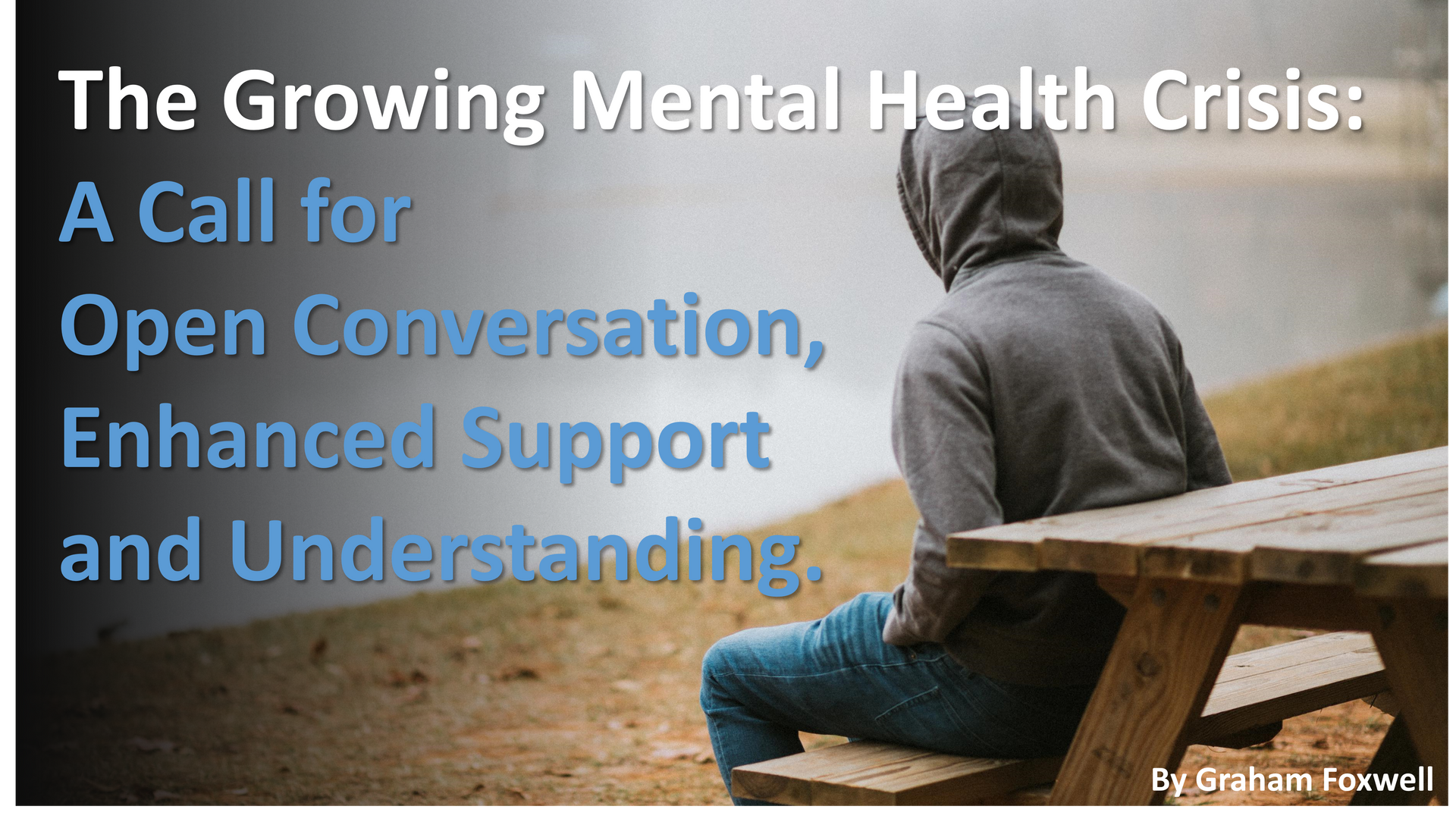Blog #2 - Mental Health Awareness Week May 2020 - Grief & Loss
Our 2nd post during Mental Health Awareness Week - Grief & Loss
Having lost a dear friend to the Covid19 virus this week, I would like to dedicate this to him. I wont name him on here right now in respect to his family. But some of you who read this, will know.
He was a ‘salt of the earth’ type of guy, who was liked by everyone. He was a work colleague who I valued as a friend very much.
“Rest in Peace my Friend - you made a significant impact on my life and I will remember you. You will be greatly missed by family, friends and co-workers.”
We all have grief and loss in our lives. This can be from a loss of a valued friend or relative or even a pet, to the loss of a job, home, partner (separation), physical or mental health and more. Loss is….. Loss, and therefore there is grief from loss.
There is a theory developed by psychiatrist Elisabeth
Kübler-Ross (July 8, 1926 – August 24, 2004)
, who states we go through 5
stages of grief and loss (from her Book: On Death and Dying - 1969)
:
1. Denial
2. Anger
3. Bargaining
4. Depression
5. Acceptance.
People who are grieving do not necessarily go through the stages in the same order or experience all of them. But the stages are experienced by people from all walks of life, across the world and all cultures.
Grief occurs in response to an individuals own loss of something valued, precious, or beloved. A scent, a sound, a smell, a taste can all trigger the grief response. We all will spend different lengths of time going through each step. Don’t be hard on yourself or the person grieving, as will experience each stage differently.
Realising this COVID19 is not going to pass by quickly, we are all going to experience loss at some point.
Sometimes the death of a loved one might move you to evaluate your own feelings of life and death. But throughout each stage, a common thread of HOPE emerges. Those who know me, know HOPE is one of my favourite words and is the underlying message of my Company Cedar Tree Mental Health and Well-being ; which is “ There is HOPE to be found ”.
As long as there is life, there is hope. As long as there is hope, there is life. (Stephen Hawking)
A really important thing to understand is; everyone grieves differently. Some people and cultures are very outwardly emotional, and others will experience their grief more internally.
Emotional outward grief I believe will improve the passage of grief and enhance recovery, but we should not judge how a person experiences their grief, as each person will experience it differently.
The 5 Stages of Grief and loss according to Elisabeth Kübler-Ross are:
1. Denial
In this stage, there is utter disbelief, and questioning thoughts. We are engulfed by feelings of shock and devastation. We struggle to make sense of events and feeling numb is normal. It can feel like our world has become meaningless and life is overwhelming. Trying to get through each day can feel impossible.
However, at this stage denial and shock can be positive and offer benefits, it allows us to put a sense of distance between us and the enormity of the loss: Because we are not yet fully in touch with these emotions, this distance, makes it easier to pace our feelings of grief.
It is a defence mechanism that allows our brains to handle the situation and dispose of stuff we don’t need right now. It serves to protect us, as the reality of the loss is accepted, and we begin the healing process.
As mentioned earlier, stages do not necessarily run consecutively, and you may not pass through them all. When the denial stage starts to fade, the feelings that were initially denied may begin to re-emerge, and you may find yourself being faced by the devastating pain that lies beneath.
2. Anger
Anger is a normal, natural, and positive part of the grieving and healing process. It is not always part of everyone's experience, and some people feel uncomfortable with feeling anger.
However, being willing to feel our anger and not deny it, even though it may be extremely intense, is an essential and cathartic part of this stage. The more you allow yourself to feel anger within a safe environment, the more it can be released and processed.
There is a positive side of anger. It is that it enables us to channel energy and helps to make some sense of our pain.
At times this may feel easier than feeling the feelings behind it. When we experience a loss, we may have every right to be angry. Even if it sometimes, feels like it lacks justice or logic. The feelings that we feel are neither wrong or right, good, or bad. They are what they are. Let them come and go.
3. Bargaining
In this stage it can feel like we are navigating through a maze of regret and sorrowful thoughts.
And Guilt shows its head!
“What if I…” or “if only we had…" statements run in a circular fashion in our minds. Of course, we would give anything to have our loved one back. Some of us wish we had a time machine and want to go back in time and do things differently to change the outcome… If only.
At this point it's important to exercise self-compassion, and understand, we cannot change the past.
4. Depression
This stage forces us to focus on the present, it confirms that there is nothing that can be done to alter the permanence of the loss. This stage differs from a clinical or GP’s diagnosis of depression and it's not a sign of illness. The overwhelming sadness is a natural and normal response to a huge loss.
It represents the emptiness we feel when we are living in reality and realise that our loved one is never coming back.
In this stage, withdrawing socially and from life in general, feeling numb or feeling as if you are living in a fog is common.
Facing the outside world might seem too much to manage. Avoiding others and feeling hopeless and fearful is typical of this stage. When loss finally sets in, depression is a natural phase to prepare us to accept the unacceptable.
5. Acceptance
At first, acceptance might simply mean more good days than bad ones, or perhaps an increased distance between their frequency.
Sometimes being able to remember more memories without the distressing emotions shows that we are taking steps towards acceptance. The final stage of the grieving process does not mean that we have to forgive, excuse what has happened or retreat back into denial.
There is no expectation to feel all right about the loss of a loved one.
This stage focuses on accepting the permanent reality that our loved one is physically gone. We will never like this reality or make it OK, but eventually we accept it. We learn to live with it. We need to learn and adjust to living our life where our loved one is missing.
Most people experience grief when they lose something or someone important to them. If these feelings are affecting your life, there are things you can try that may help.
Do
- Try talking about your feelings to a friend,
family member, health professional or counsellor – you could also contact a
support organisation such as Cruse
Bereavement Care
or call: 0808 808 1677
- Try H.O.P.E. These are 4 ways to feel happier,
which are simple lifestyle changes that may help you feel more in control and
able to cope. These can be found HEREin the Blog #3 of the Mental Health Awareness Blogs May 2020.
- Speak to your GP who can signpost you to support.
- Consider peer support, where people use their experiences to help each other. Find out more about peer support on the Mind website
- Listen to free mental wellbeing audio
guides.
- Search and download relaxation and mindfulness apps or online community apps. Please be careful to only use reputable and trustworthy organisations such as Mind , The Samaritans , CALM etc.
Support is always available if you're finding it hard to cope with stress, anxiety or depression. A counsellor can also help to give extra support during this difficult time. The Counselling directory
Don't
- Do not try to do everything at once – set small
targets that you can easily achieve.
- Do not focus on the things you cannot change –
focus your time and energy into helping yourself feel better.
- Try not to tell yourself that you're alone –
most people feel grief after a loss and support is available.
- Try not to use alcohol, cigarettes, gambling or drugs to relieve grief – these can all contribute to poor mental health.
Thank you for reading. Please look out for future BLOGS and articles from Cedar Tree Mental Health & Well-being. www.cedartree-mhw.co.ulk #cedartreemhw
Thank you for reading. Please look out for future BLOGS and articles from Cedar Tree Mental Health & Well-being.
www.cedartree-mhw.co.uk #cedartreemhw
You can find the other Blogs in this series below (Mental Health Awareness Week - May 2020)
- Blog #1 - Mental Health Awareness Week May 2020 - Intro
- Blog #2 - Mental Health Awareness Week May 2020 - Grief & Loss
- Blog #3 - Mental Health Awareness Week May 2020 - Hope
- Blog #4 - Mental Health Awareness Week May 2020 - Marathon
-
Blog #5
-
Mental Health Awareness Week May 2020 -
Living with Parkinson’s
Excerpts, comments, and quotes drawn from:Elisabeth Kübler-Ross, f rom her Book "On Death and Dying - 1969" - NHS England - The Counselling Directory – PhychCentral – VeryWellMind – Psychology today.














